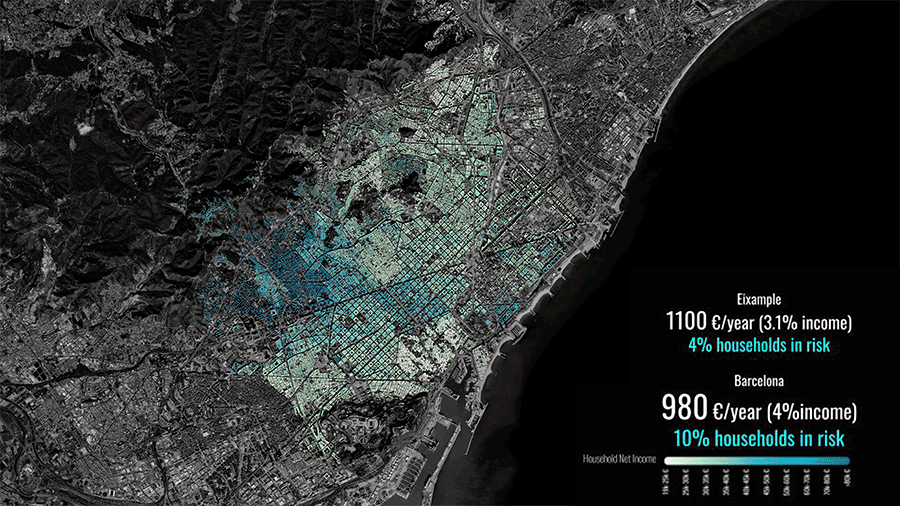The Energy Cocoon
This analysis is part of a larger project envisioning a new energy policy for the city of Barcelona. In order to understand the energy consumption behaviors and patterns in the city, an extensive data analysis and research was carried out. This allowed us to identify areas of risk in comparison to income and building ages.
In Barcelona, roughly 10% of the 1.6 million inhabitants live under conditions of energy poverty. These people are cold at home, unable to cook food or use their oven.
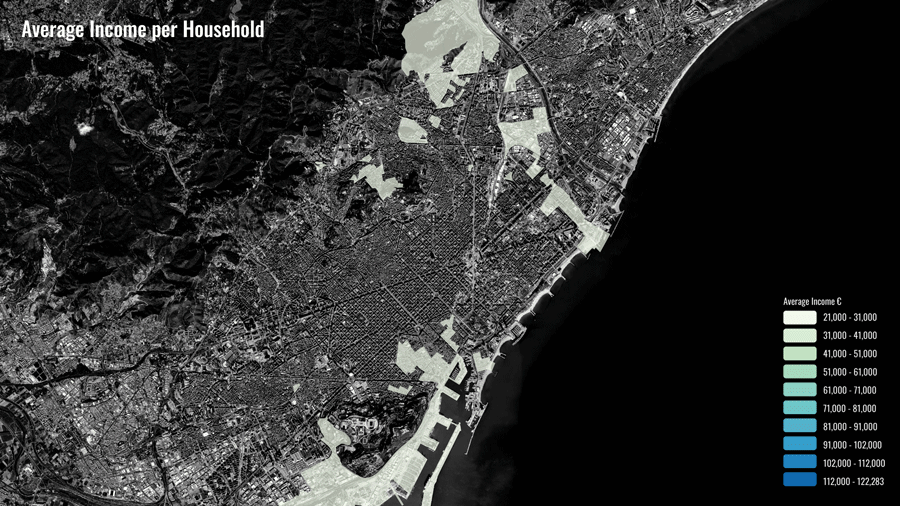
Meanwhile, About 50% of energy is wasted due to lack of insulation and low building energy efficiency. Because 71% of buildings are older than 50 years.
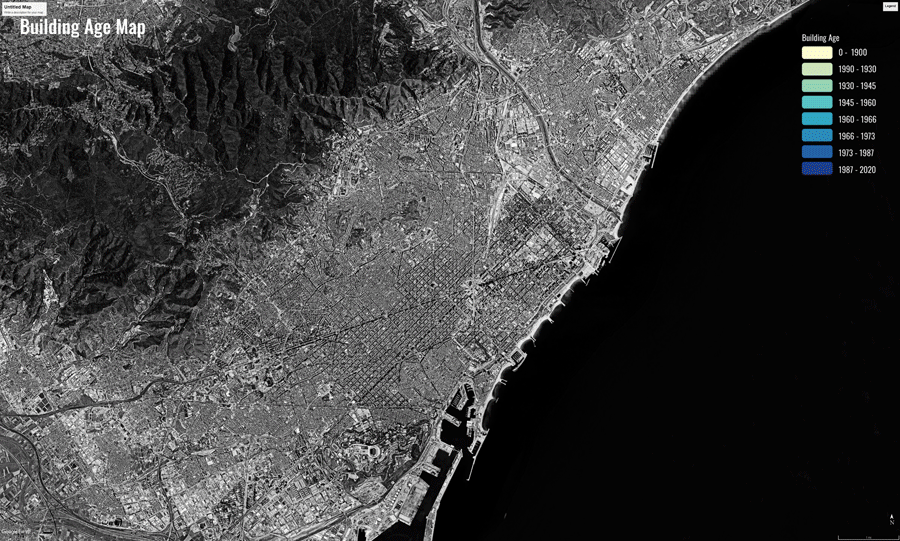
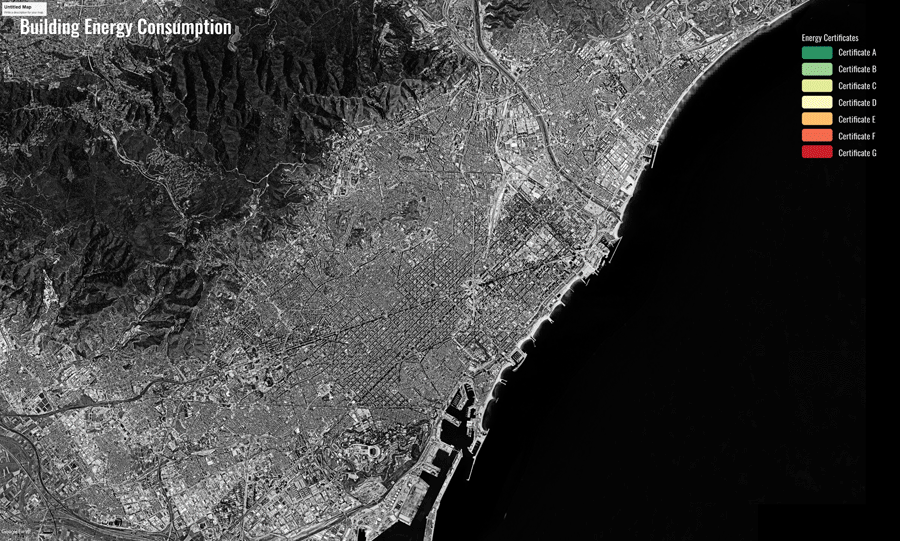
Comparing heating consumption to building age
This graph shows how energy consumption clearly varies between different building ages across Eixample.
The line in blue shows how the energy consumption can drastically reduce after applying building improvements and saving measures.
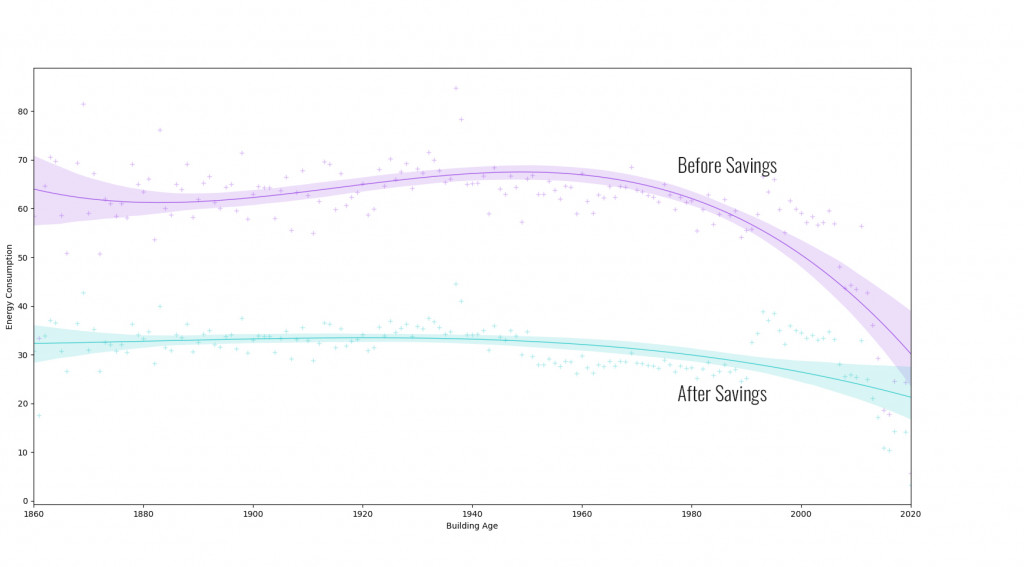
Building Energy Consumption in L´Eixample
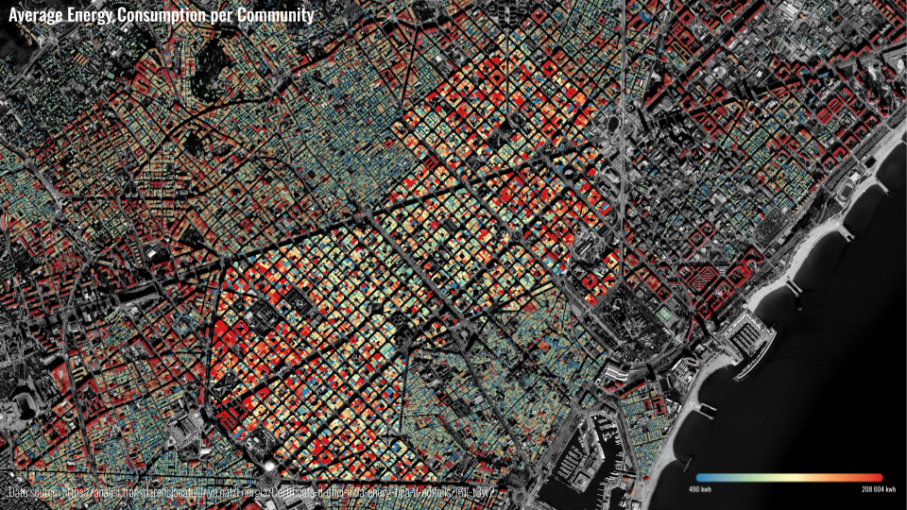
Building Energy Savings in L´Eixample
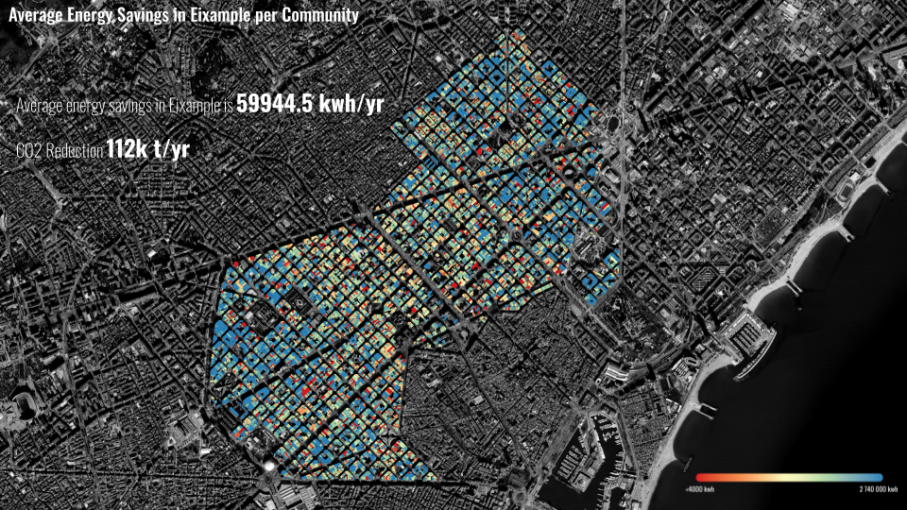
Building Investment for Energy Savings in L´Eixample
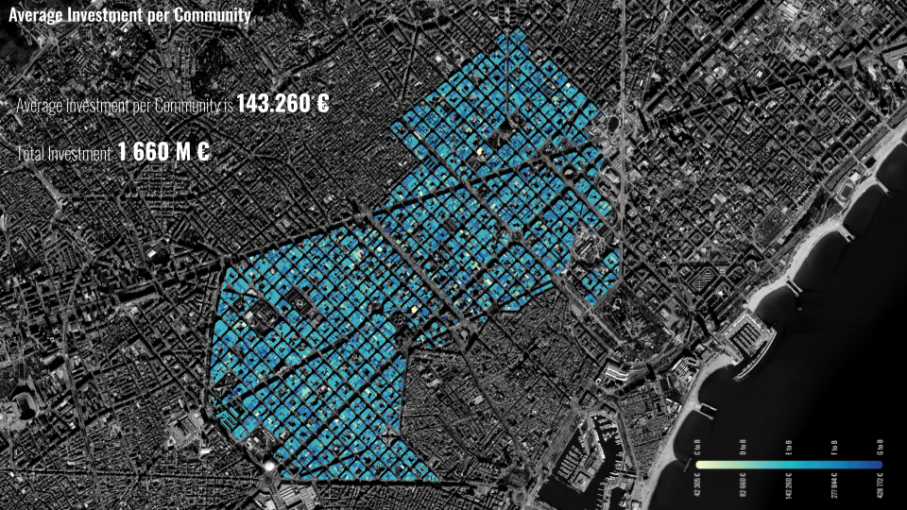
Data Source and Processing
Source code:
https://github.com/TugdualSarazin/eixample_energy
Data Source:
https://ine.es/en/
https://analisi.transparenciacatalunya.cat/en/Energia/Certificats-d-efici-ncia-energ-tica-d-edificis/j6ii-t3w2
http://simuladoredificis.icaen.gencat.cat/
Process:
It included a small internal library to abstract Matplotlib functions (source code: drawers) and the code to generate data visualizations.
It’s based on 3 main libraries:
- Matplotlib to manage animations and scatter plots
- geopandas to draw maps
- Contextily to download and display the background image of maps
The Energy Cocoon: Barcelona Energy Analysis is a project of IAAC, Institute for Advanced Architecture of Catalonia developed at Master in City & Technology in 2020/21 by student: Alvaro Cerezo Carrizo, Tugdual Sarazin, Inigo Esteban, Leyla Saadi, Mario Jose Gonzalez and faculty: Diego Pajarito.
